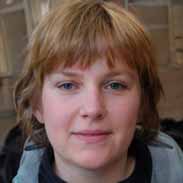Antonie Van Leeuwenhoek Flashcards, test questions and answers
Discover flashcards, test exam answers, and assignments to help you learn more about Antonie Van Leeuwenhoek and other subjects. Don’t miss the chance to use them for more effective college education. Use our database of questions and answers on Antonie Van Leeuwenhoek and get quick solutions for your test.
What is Antonie Van Leeuwenhoek?
Antonie Van Leeuwenhoek is widely considered to be the father of microbiology. He was a Dutch scientist who is credited with discovering and describing single-celled organisms, which he referred to as animalcules. His pioneering work in microscopy laid the foundation for modern understandings of biology and the microbial world.Van Leeuwenhoek was born in 1632 in Delft, Holland. He had limited formal education but was curious about nature and enjoyed experimenting. He became an apprentice to a cloth merchant and later opened his own shop where he sold fabrics and other goods from around Europe. In his spare time, he conducted experiments with lenses that eventually led him to build powerful single-lens microscopes which could magnify objects up to 200x their original size. Using these microscopes, Van Leeuwenhoek made some of the most important discoveries of all time regarding microscopic life forms such as bacteria, protozoa, and sperm cells. His discovery of living organisms too small to be seen by the naked eye provided evidence that contradicted established theories at the time which held that all life came from spontaneous generation rather than reproduction. His observations helped to advance our understanding of cell biology, evolution, and ecology today. In addition to his groundbreaking work on microscopic life forms, Van Leeuwenhoek also studied plants and animals at various levels of magnification including insect anatomy, animal muscles and nerves, blood circulation systems as well as plant structure. He wrote detailed letters about his observations on these subjects which were published by The Royal Society in London for other scientists around Europe to learn from during this era before scientific journals were commonplace. Van Leeuwenhoek’s works are still praised today for their accuracy despite having been written several hundred years ago. His discoveries revolutionized our understanding of microbiology and laid the groundwork for modern biological sciences we use today such as biochemistry or genetics research. Antonie Van Leeuwenhoek remains one of history’s most influential scientists whose impact can still be felt even centuries after his death.








